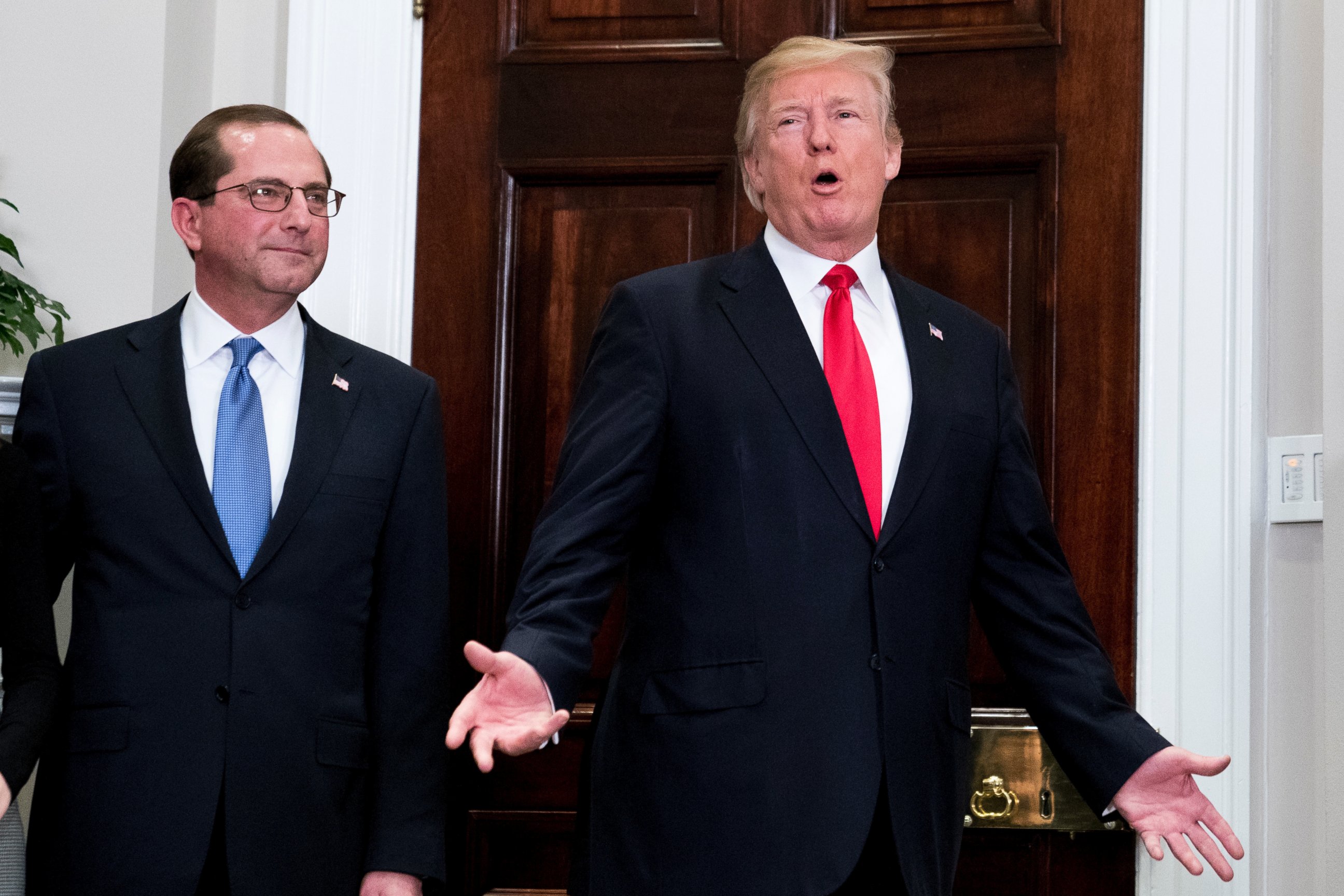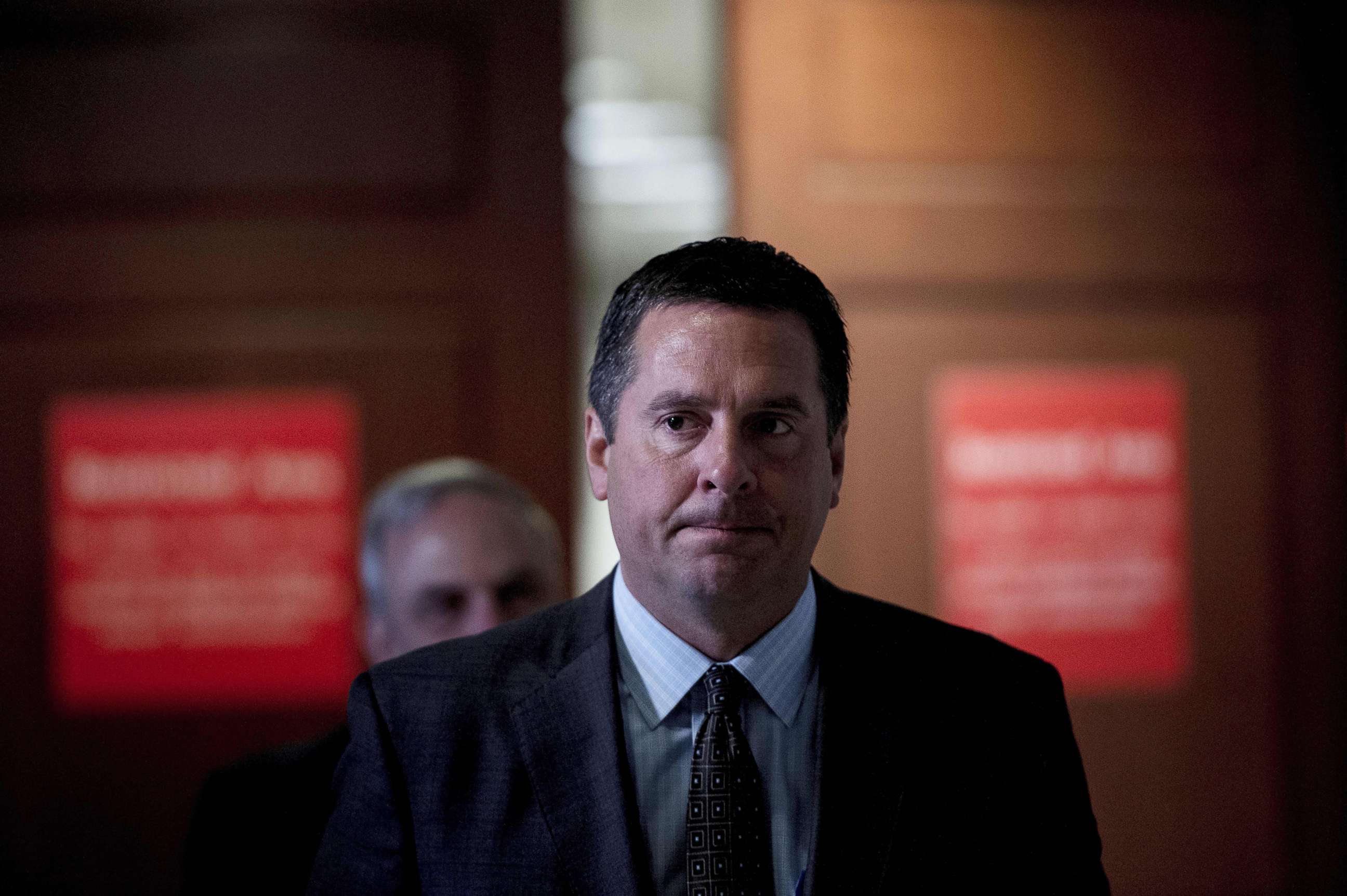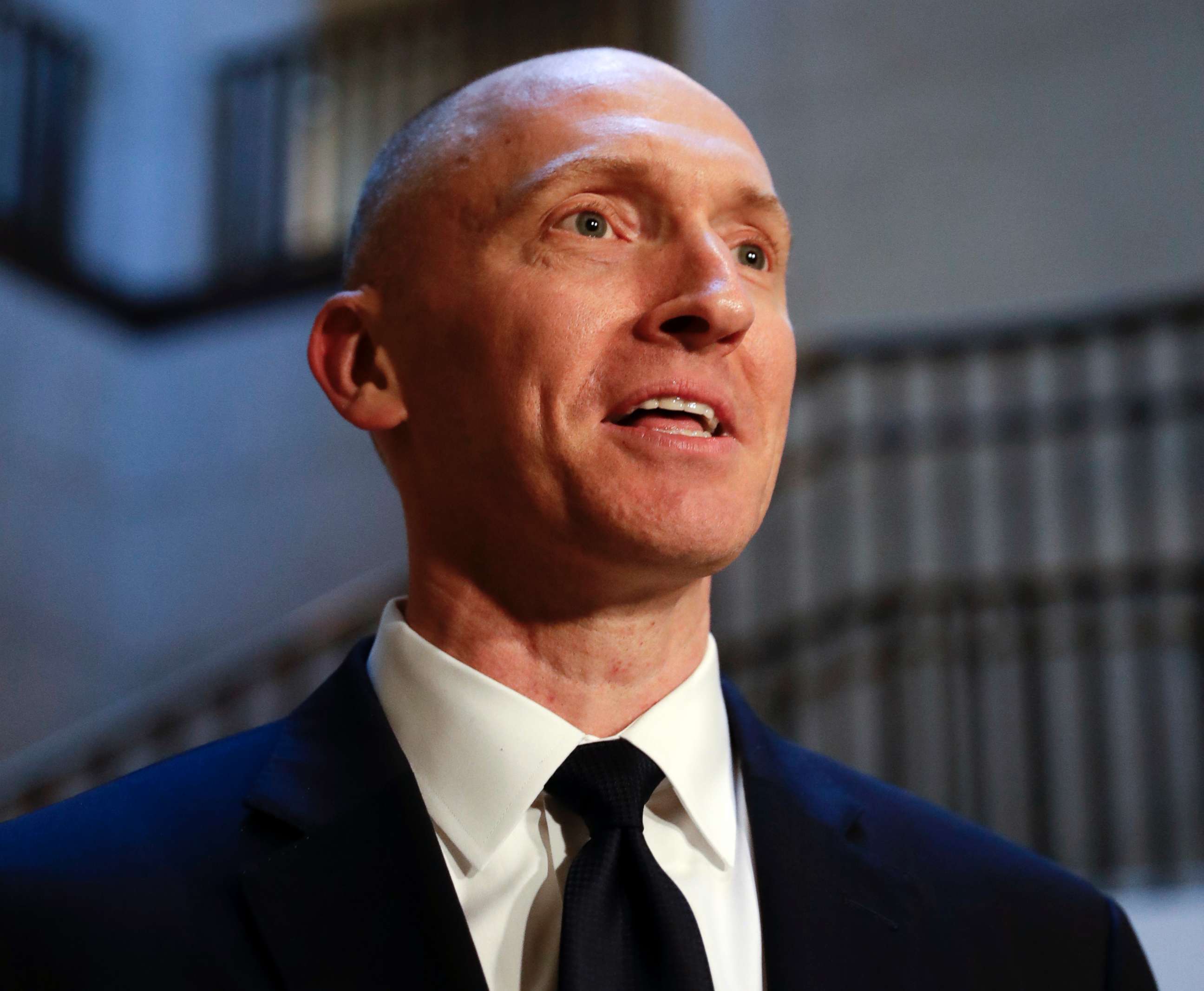Classified GOP memo alleging FBI wrongdoing sent to President Trump to decide whether to declassify, allow release
Republicans on the House Intelligence Committee voted to release the memo.
— -- A classified Republican memo alleging FBI wrongdoing in the Russia investigation is now at the White House where President Trump has five days to decide whether to declassify it and the sensitive intelligence information it’s said to contain.
White House deputy press secretary Hogan Gidley confirmed on CNN that the memo had arrived at the White House Monday night not long after Republicans on the House Intelligence Committee — led by Chairman Devin Nunes — voted along party lines to publicly release the memo. They did so over strong objections from committee Democrats and even the FBI and the Justice Department — which has said releasing the memo would be “extraordinarily reckless.“
“The president will ultimately be the one to make that call. He wants transparency,” Gidley told CNN. “He wants the people to see just what they are dealing with with their government but at the same time the president would never risk putting American lives at risk over a document. When he takes a look at it and seeks counsel from his team, he'll make that decision.”
Even as Republicans on the House Intelligence Committee voted to release the GOP-authored memo, they voted against releasing a Democratic memo they say shows the Republican memo to be highly misleading.
"We have votes today to politicize the intelligence process, to prohibit the FBI from expressing concerns to the committee and to the House and to selectively release to the public only the majority's memo without the full facts," the top Democrat on the committee, Rep. Adam Schiff, D-Calif., told reporters Monday evening.
"A very sad day, I think, in the history of this committee," he said.

Many Republicans, as well as Donald Trump Jr., have alleged the memo could show the FBI and Justice Department improperly conducted secret surveillance of Trump’s past campaign aides.
Republicans have accused the FBI and Justice Department of using a controversial "dossier,” alleging ties between Trump associates and Russian operatives based on research by former British spy Chris Steele, to persuade a federal judge to green-light surveillance.
The Justice Department, meanwhile, has provided the House Intelligence Committee with more than 1,000 pages of classified documents relating to the FBI’s “reliance, if any, on information” from the dossier, and releasing a memo containing such classified information would be “extraordinarily reckless” and potentially harmful to national security, according to a letter the department sent Nunes last week.
Here's what you need to know about how the government seeks permission for surveillance and the controversy over whether the Justice Department allegedly abused the process:
What are Republican concerns?
Trump and other Republicans have expressed concern that the FBI's initial investigation into Russian meddling in the 2016 presidential election and Special Counsel Robert Mueller's broader probe looking at possible collusion and obstruction of justice have been based on a "dossier" Trump insists is "disproven."
Nunes had his staff compile a classified memo on the FBI’s handling of the matter, and now Republicans want the president to release it publicly.

"Americans deserve to know the contents of the memo," Donald Trump Jr. tweeted more than a week ago. "Democrats & deep state govt officials are doing everything they can to protect those within the government who used their positions of influence to target those they disagree with politically."
On the same day, President Donald Trump tweeted a message saying surveillance powers were "wrongly abused during the election."
Why is this an issue? The backstory on surveillance is complex
As former FBI Director James Comey told a Senate panel last year: “FBI counterintelligence investigations are different than the more-commonly known criminal investigative work.”
The purpose of an FBI counterintelligence probe is to learn how foreign governments are trying to influence the United States or steal American secrets, and then block those efforts. Counterintelligence investigations “tend to be centered on individuals the FBI suspects” are undercover spies for a foreign government or – even unwittingly – being targeted as sources of information, Comey said. As previous cases have shown, it often takes the U.S. government years or even decades to conclude a counterintelligence investigation.
To conduct counterintelligence investigations, the FBI often relies on confidential informants, property searches and secret surveillance of phone calls and emails. But for the FBI to eavesdrop on a target’s communications, the FBI must persuade a judge on the secretive Foreign Intelligence Surveillance Court that there’s “probable cause” to believe the target is acting as an agent of a foreign power – even if unwittingly. Naturally, surveillance of one target’s communications can reveal other potential targets.
In weighing whether to approve an application submitted under the Foreign Intelligence Surveillance Act -- or FISA -- the presiding judge “may consider past activities of the target and facts and circumstances relating to current or future activities of the target,” according to U.S. law.
FISA applications are "very lengthy documents,” Rosenstein told the Senate Intelligence Committee last year. James Comey famously said they “are almost always … significantly thicker than my wrists.”
FISA a rubber stamp?
Critics often accuse the FISA court of rubber-stamping applications because nearly all requests are approved.
But judges on the court reject that characterization, noting requests are officially submitted only after undergoing a collaborative, extensive review and editing process. Applications with insufficient supporting evidence are rarely pursued, according to a federal judge in Washington.

“Many applications are altered prior to final submission or even withheld from final submission entirely, often after an indication that a judge would not approve them,” U.S. District Court Judge Reggie Walton wrote to Congress in 2013, when he was the top judge on the FISA court.
FISA surveillance of a Trump adviser
Several years ago, well before Trump was ever a candidate for president in 2016, the FBI opened a counterintelligence investigation into a suspected Russian spy ring based in New York City. The FBI believed that a supposed Russian banker named Evgeny Buryakov and a Russian representative to the United Nations named Victor Podobnyy were actually spies for the Kremlin.
The FBI set-up surveillance of them under FISA, and while listening to the pair’s conversations, federal authorities heard Podobnyy tell Sporyshev about his efforts to recruit an American consultant named Carter Page as an intelligence source.
Page was “an idiot” who “flies to Moscow more often that I do,” Podobnyy told Sporyshev in an April 2013 phone call recorded by the FBI, according to charging documents filed in the case.
“It's obvious that he wants to earn lots of money,” Podobnyy said of Page, who was seeking business opportunities in Russia. “For now his enthusiasm works for me. I also promised him a lot … [and] I will feed him empty promises.”
As a result of what investigators found, Page himself was put under FBI surveillance. And in a statement to ABC News last year, Page acknowledged that he shared information with Podobnyy, which he insisted was just “immaterial information and publicly available research documents.”
"In doing so, I provided him nothing more than a few samples from the far more detailed lectures I was preparing at the time for the students in my spring 2013 [class] … at New York University,” Page said in his statement.
According to The New York Times, the memo potentially being released by Nunes indicates that even as recently as last year, Rosenstein approved continued surveillance of Page, who became an adviser to Trump's campaign. It’s unclear whether that approval was based on any new information, potentially including information culled from the “dossier,” which was turned over to the FBI in July of last year.
Nevertheless, Page told ABC News he believes government decisions about surveillance targeting him were motivated by assumptions rooted in outdated, Cold War biases.
“U.S.-Russia relations has been dominated by misunderstandings throughout much of the past 70 years, since the original McCarthy era,” Page said. “I harbor no ill will towards anyone for past xenophobic biases and only hope that justice is eventually served.”
Porodbnyy and Sporyshev have been charged for their role in the alleged spy network. They are awaiting trial. A third suspect in the case, Evgeny Buryakov, pleaded guilty and has been sentenced to 30 months behind bars.
ABC News' Mike Levine, Matt Mosk and Mary Bruce contributed to this report




